Toxicity by System of a Down
Toxicity was a very strange hit album from an even stranger, and more chaotic time period.
Imagine the outgoing sound of the heavily affected guitar of Nickelback’s “How You Remind Me.” The song finished somewhere in the universe and that guitar is just slowly fading out. Then you hear the opening notes of System of a Down’s brand new song “Chop Suey!” The acoustic guitar makes way for an electric. The tide rises until it explodes into a staccato guitar riff that would make your grandma bang her head. Then, out of nowhere, Serj Tankian’s distinctive voice sings the opening lines.
WAKE UP!” (unintelligible) “MAKE UP!
(Unintelligible) fade away the SHAKE UP!
Why’d you leave the keys upon the table?
Here you go create another fable
You wanted to!
The Nickelback thing? That was just the MP3 I had because someone recorded the song off the radio and was sharing it on a peer-to-peer network. “Chop Suey!” was released to radio as a single as a way to tease the new album from a weird metal band that was due to release their sophomore record that they did with Rick Rubin. I downloaded the mp3 off of Kazaa or Napster or something like that, and now I had my own personal album preview for System of a Down’s forthcoming record Toxicity. And I was infatuated with it.
I’ve told you before about how I would get obsessed with songs and just play them repeatedly? “Chop Suey!” is one of those songs. I was in a cubicle at a job in college, and I had my headphones on and instructed Winamp to just keep playing it over and over. And as we all know Winamp really whips the llama’s ass. Who was the kind of person who loved System of a Down to the point that they could be infatuated with that type of band? There are millions of answers, but this is mine. Let me set the rest of the stage.
I worked for a company in Cambridge, Massachusetts as an intern while still in college. I was making $15 an hour (!!!) and had recently started working for the business development department, but it was a painful path where I learned many lessons about the business world that I couldn’t have learned across the river at Boston University’s business school.
When I started at the company, we didn’t yet know that we were nearing the end of the salad days of the dot-com bubble. The company had already been sold once when I started working there and was sold a second time in June of 2000 to an even bigger company. I was still an intern and thought I was setting myself up for a cushy first job out of college. Meanwhile, I was making $15 an hour and when you’re lucky enough to have your tuition, room, and board all paid by your parents, that’s big time.
I should have known better than to think everything would go to plan, but I was young and naive. We all should have known better in hindsight. The company we worked for made business-to-business websites so that companies could sell their wares online. Our company used to throw parties when customers paid their bills. I guess that means some companies didn’t pay their bills. This company that didn’t know if it was going to be paid had a stock value on the publicly traded markets somehow. At least until it didn’t. After being acquired a second time and watching the stock market not appreciate the news and somehow still moving to bigger, fancier offices, the company went through a first round of layoffs. Talk about confusing. You get acquired. You move to fancy new state of the art offices with an unbelievable coffee maker and a ping pong table in the break room. And then shortly thereafter, the first round of layoffs take place.
At that time, I worked in IT helping keep computers connected, email servers running, and making sure Windows updates didn’t crash machines. As a low-paid staffer, I was not going to be laid off. So, on layoff day, I was part of the team. When they called someone into the conference room to let them go, I would receive a message on AOL Instant Messenger, and I would go to their cubicle and confiscate their laptop. I was in my early 20s and still a college student. The people being let go were mostly also firmly in their 20s, and not all of them handled things very well. They certainly didn’t appreciate some intern walking around the office like an angel of death stealing their soon-to-be departed co-workers’ computers.
Soon after the chopping block assembly line was started, I was cornered by a guy I knew. He accused me of having a list and demanded that I just tell him who would be laid off rather than leave everyone sitting around wondering if they were next. I tried to tell him that I didn’t have a list and that they were sending me IMs as soon as I needed to grab someone’s stuff, but he was too emotional and cut me off. He looked at me disgusted, as if I was “the man” and swore at me as he retreated in a huff to his cubicle to await his fate. I can still smell the stale flop sweat that soaked my pits from carrying out those horrible duties that day. And I wasn’t even the one getting laid off.
There were tears. There were outbursts. They had security on hand to ensure nothing was too out of control. I survived the layoffs and was able to move over to business development. I got to help with presentations for prospects. It was a great education from an incredible boss. But soon, there was nothing to do. There was no business to develop.
The bubble had burst. We now worked in a mostly-empty office with very few sales prospects. The sales guy no longer worked there either. I don’t know if they just didn’t care about the small amount of money I made, but I kept going in and getting paid to sit there and play on the internet while listening to music on my headphones. Of all the music I listened to, I only remember the day I listened to “Chop Suey!” all day long. It was the perfect soundtrack to a weird situation at a dying company.
Father, into your hands I commend my spirit
Father, into your hands
Why have you forsaken me?
In your eyes forsaken me
In your thoughts forsaken me
In your heart forsaken me
My memories are fuzzy, so I’m putting the timelines together to make sense of the details in my brain. “Chop Suey!” was officially released as the first single on August 13, 2001, according to the Wikipedia. Toxicity the album was released on September 4, 2001, just a week before the terrorist-driven planes hit the World Trade Center and gave us a world-altering tragedy. Jay-Z’s The Blueprint was released on 9/11 and had the Number 1 slot. Nickelback’s Silver Side Up was also released; thus all the radio play for “How You Remind Me.” Toxicity would take the top spot on 9/22/2001.
I eventually was laid off from that company, but it wasn’t all bad. I was finishing my last semester at Boston University - an extra semester beyond my four years - with a severance package. Let me repeat that. They gave an intern a severance package. Sure, I wouldn’t have that cushy job I thought I was working on when I spent all that time as an intern across the river in Cambridge, but what are you going to do? Before the final day at that place, I spent my time driving across the river to the office, listening to Toxicity repeatedly. I had been a System of a Down fan since their first major release, but this album felt like a perfect soundtrack for the time period.
We were in the wake of tragedy. Now that I had no job prospects for the future, I was feeling very much like a failure for not graduating on time. I was lonely too.
I had great friends, but I didn’t have a girlfriend throughout the entirety of my college career. For real. Not one. I guess I was the first incel? Ouch. It hurts even to type that. My life did improve eventually, but man, things were bleak at that time. I knew firsthand that System wasn’t traditionally music for cute girls. I know that’s a weird thing to say, but hang with me for a second.
System of a Down was a band that I already loved in the late 90s. Much like Tool, Nine Inch Nails, or even Slipknot, System had a mysterious, dangerous vibe. You’re listening to the opening track, “Suite-Pee” from their debut, and you can just imagine the singalong forming as the band cuts time and Serj sings, “I want to f*** my way to the garden… ‘cause everyone needs a mother…. F***ER!” What does that even mean? I have no idea. What band is able to turn lyrics like that into a crowd participation? System of a Down and? And what of the crowd that wants to scream that back at the band? It me.
I saw System of a Down play a show at Avalon in Boston on February 16, 2000. It was the 2000 edition of the “Sno-Core” tour. They were co-headlining with Incubus, with Mr. Bungle as one of the openers. The night I saw them, Incubus went on before System of a Down, who closed the night. I liked Incubus, but I really loved System of a Down.
Thanks to WAAF in Boston, there’s video of the show I attended on Youtube.
Incubus was incredible that night. Hearing them play “Pardon Me,” “Make Yourself,” and then end their set with “Redefine” was about as epic as I could have asked for. Brandon Boyd owned the stage with his pretty boy looks, sticking his tongue out as he sang. However, as soon as Incubus finished, every pretty girl in the place departed.
System of a Down took the stage to an almost all-male crowd. I was able to move much closer into the pit to rock out to System of a Down. Pay no attention to the fact that I bought a single ticket, was by myself, and went home alone too.
System of a Down was incredible, though. They opened with “Suite-Pee” and blew the roof off the place. They almost did give the crowd a heart attack by finishing with a back-to-back smack of “War?” and the infectious “Sugar.” (Pun intended.)
They played “Spiders” smack dab in the middle of their set…
I always thought System of a Down would take off as a band because of “Spiders.” Serj Tankian’s vocals went perfectly with Daron Malakian’s guitar parts and backing vocals. Shavo Odadjian and John Dolmayan, on the bass and drums, fit the music like a glove. They played with a level of rhythmic expertise across the entire band that you wonder if they all were drummers at points in their lives. The vocals and guitar leads are also just rhythmically interesting. You expect it from the bass and drums, but System of a Down as a band sounded evolved beyond their peers.
I never dreamed they’d get just as big as they did, but I heard it in “Spiders” from their first album. In fact, I thought that was a song that would break them to some degree. It had moderate success, but it didn’t do it by itself. It created buzz and made System of a Down one of those hot prospects in the music world. I heard the blend of heavy music and undeniable musicality in that song. The soaring vocal melodies in the chorus and the driving guitar leads feel perfect.
I heard a song that put some of the metal screaming to the side in favor of letting Tankian’s vocals bring more listeners in. Then again, what did I know? The first thing that they released was Tankian screaming “WAKE UP!” and it worked.
System of a Down are a political band through and through. The opening track on Toxicity is called “Prison Song” and somehow they wrote an awesome song where Serj Tankian essentially reads articles about the prison system between the choruses. The magic of System of a Down is their changes in tempos and speeds. They go at break-neck speeds and then cut it in half and it compels you to bounce your head to the music.
What they did on Toxicity was lean into the vocal harmonies. On “Needles” they left some room for Daron Malakian to take some lead vocals, leaving Serj Tankian to deliver beautiful harmonies.
The band is so efficient in creating songs with different sections. Unlike many of my favorite bands, System delivers more of a punk rock style with shorter songs. Only one time on Toxicity does the band even reach the four-minute mark on one of their songs. But listen to “Deer Dance” and it’s varying sections and tell me it doesn’t feel like the song isn’t longer. And not in a bad way. It feels like it accomplishes a lot and leaves you wanting more.
Finally, after two more spastic songs, SOAD gets to “Chop Suey!” I feel like I’ve already covered it here at length, but it’s worth talking a little bit more. It’s a perfect encapsulation of the band. It has a melodic intro, a metal riff that makes you want to bounce, a crazy vocal section, and finally one of the prettiest choruses you could ever imagine. “I don’t think you trust in my self-righteous suicide. I cry when angels deserve to die.” Seeing the band perform it live with a giant crowd is something to behold and they do it almost 30 seconds faster than the record.
Rick Rubin discussed the song specifically on The Joe Rogan experience. He talked about being open to the magic in the world and letting it enter you. And watching Rick Rubin watch the video and feel that song again in the moment 20-some years later is really powerful.
“Bounce” is another great song, but it’s sneaky. It feels kind of repetitive and silly as the band sings about a pogo stick. But it’s an ear worm and sticks in there. It was also used expertly in “The Secret Lives of Pets” some years later. Someone made an extended cut for Youtube because of course they did.
“Forest” has the record for the longest song on Toxicity at four minutes. It has another solid chorus on an album full of them. It feels like it fades into “ATWA” almost like they’re related songs. It’s one of the prettiest harmonies on the record. “All the world I’ve seen before me, passing by.” “ATWA” also has one of the better guitar solos on the record.
“Science” is one of the more interesting songs on the album. System of a Down is of Armenian descent. It informs a lot of their politics, but it also informs their sound. I won’t claim to be an expert on music from that region of the world, but whenever anything sounds particularly “ethnic” for lack of better word, it’s one of the differentiators that makes System of a Down truly original in the hard rock space.
I really do like the rest of the songs on the album, but I need to focus in on two that really stand out. In the end, Toxicity had three singles. “Chop Suey!” was released in August 2001. “Toxicity” was released as a single in January 2002. Finally, “Aerials” was released in June 2002.
“Toxicity” ended up making it to three on the US Alternative charts, but it felt like it lived on the radio much more than that. Then “Aerials” hit number one on both the US Mainstream Rock chart and the Alternative chart. It’s interesting that today “Toxicity” has nearly double the plays on Spotify that “Aerials” does. It goes to show that people didn’t always drive what was played most on the radio.
Toxicity made System of a Down rock stars. It took three years for their debut album to sell a million copies, but Toxicity eclipsed the million mark in just six weeks. It went on to sell three million copies in the US and 10 million around the world. Not bad for an album in the burgeoning streaming environment.
Listening to it again this week, the album sounds as fresh as it did when I played it in my old Honda Accord on the streets of Boston. It’s hard to believe this record is more than 20 years old as I write this. It’s also hard to remember all the bad feelings and nerves that went along with being me in the middle of a worldwide tragic event that unfolded during and after 9/11. All the worrying and self-loathing that would feed on each other and amplify each other, but would also eventually pass. Growing older and not knowing what’s next is hard.
System of a Down was the kind of music I gravitated toward, but I don’t know if it made my life any better or if it actually made it worse. In many ways, it feels like most things where you’ll get out of it what you want. The music fit me like a glove in that way. It fit the world we were living in as well because everything felt chaotic and out of control. Through that, there was impossible beauty and harmony through the sadness and anger.
I know I’ve shared a lot of awkward details about myself in my essay this week, but it’s the topic that’s fascinated me most of late. I’m obsessed with these bands and have been for 30 years. The origin story is partly theirs, but it’s also partly mine. Who was I at the moment in time that I needed who System of a Down were in the late 90s when I discovered them? Who did I become over the next few years when they exploded back into my life with the peak of their career?
The art is fascinating all by itself, but for each fan, there’s a story that gave the art even more power than the artist could have foreseen when they committed those riffs, rhythms, and words to a recording and shared it with the world. In my case, it’s fascinating to look back on times of my life that were pretty objectively awful. But despite that, the art that captivated the younger version of myself doesn’t carry the stink of my greatest fears and awkward years.
System of a Down’s biggest humanitarian and political issue is the lack of recognition of the Armenian genocide. In 2015, they played a giant show in Yerevan to mark the tragic 100th anniversary. Taking a 100-year-old tragedy that hasn’t received enough cultural recognition worldwide, and using the somber occasion to celebrate heritage and literal survival with a singalong to the song “Toxicity?”
Seems pretty perfect, huh?



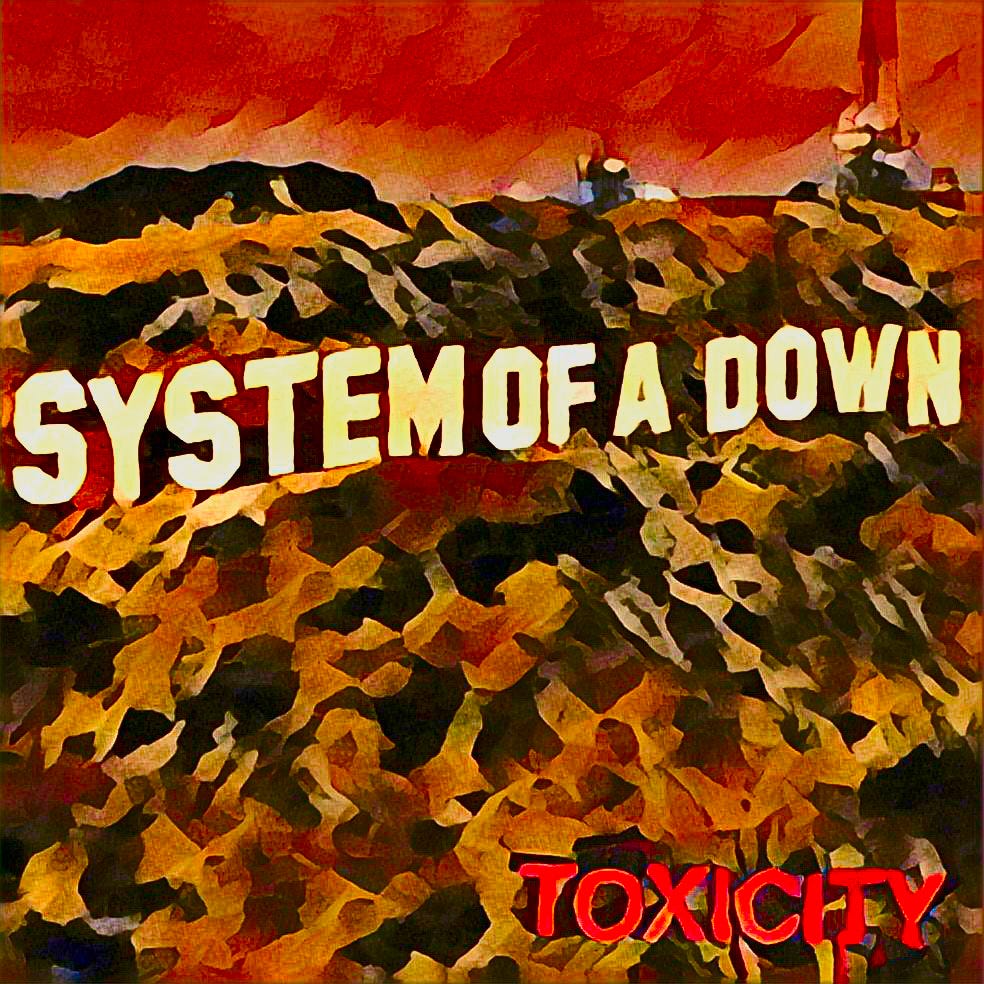

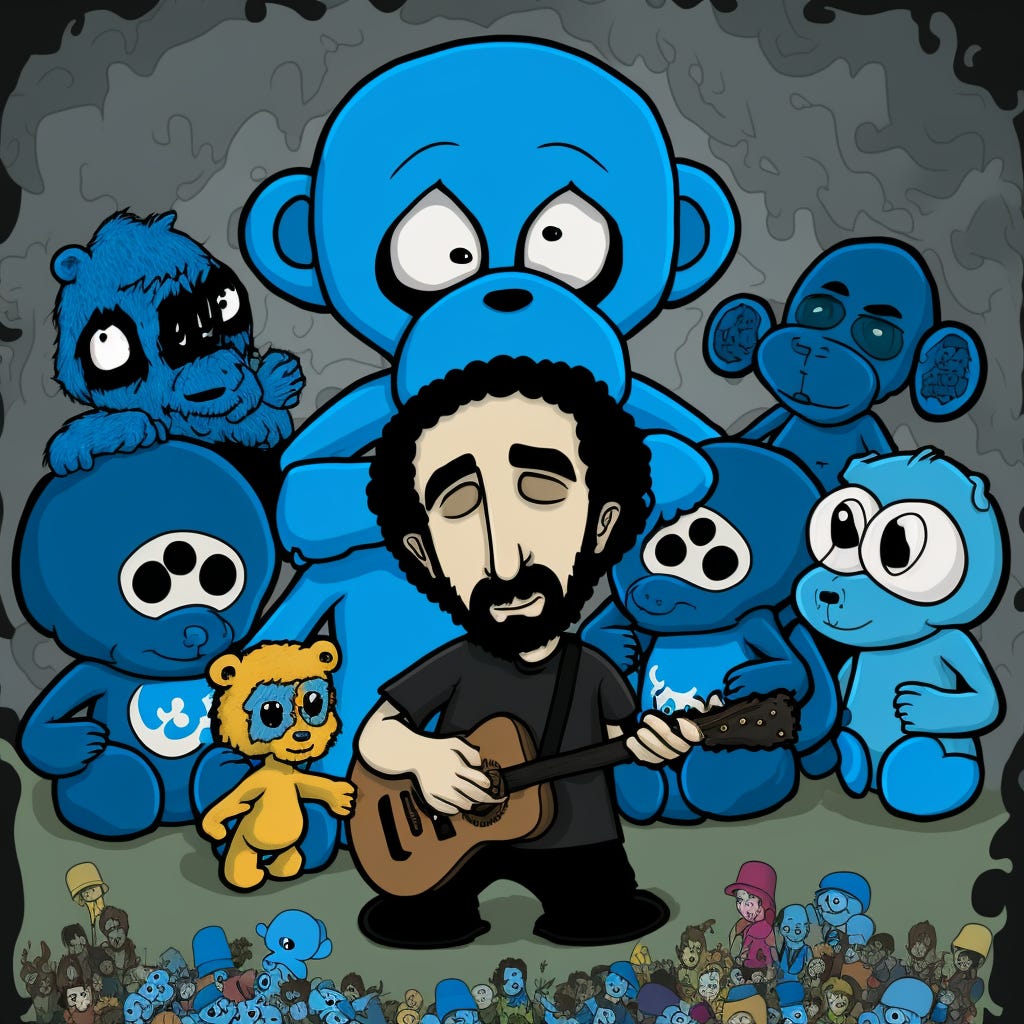
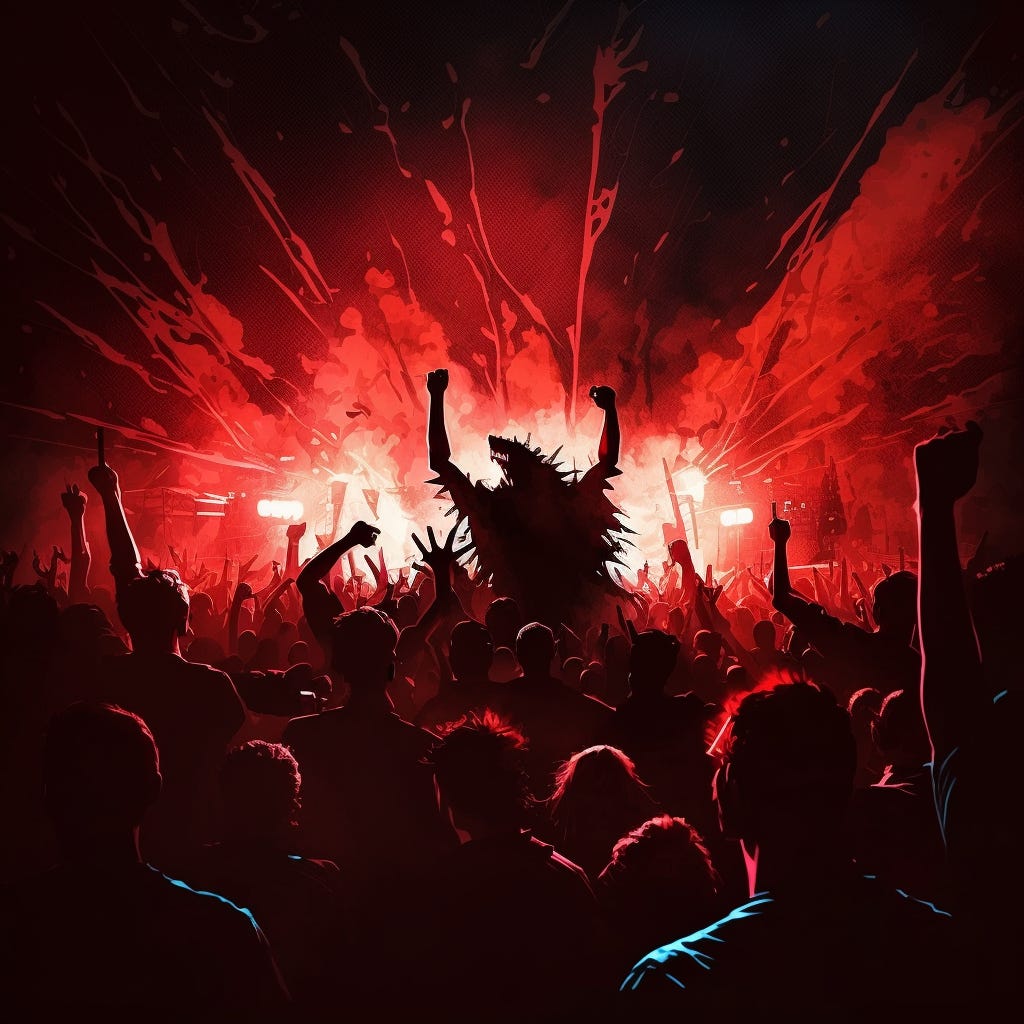
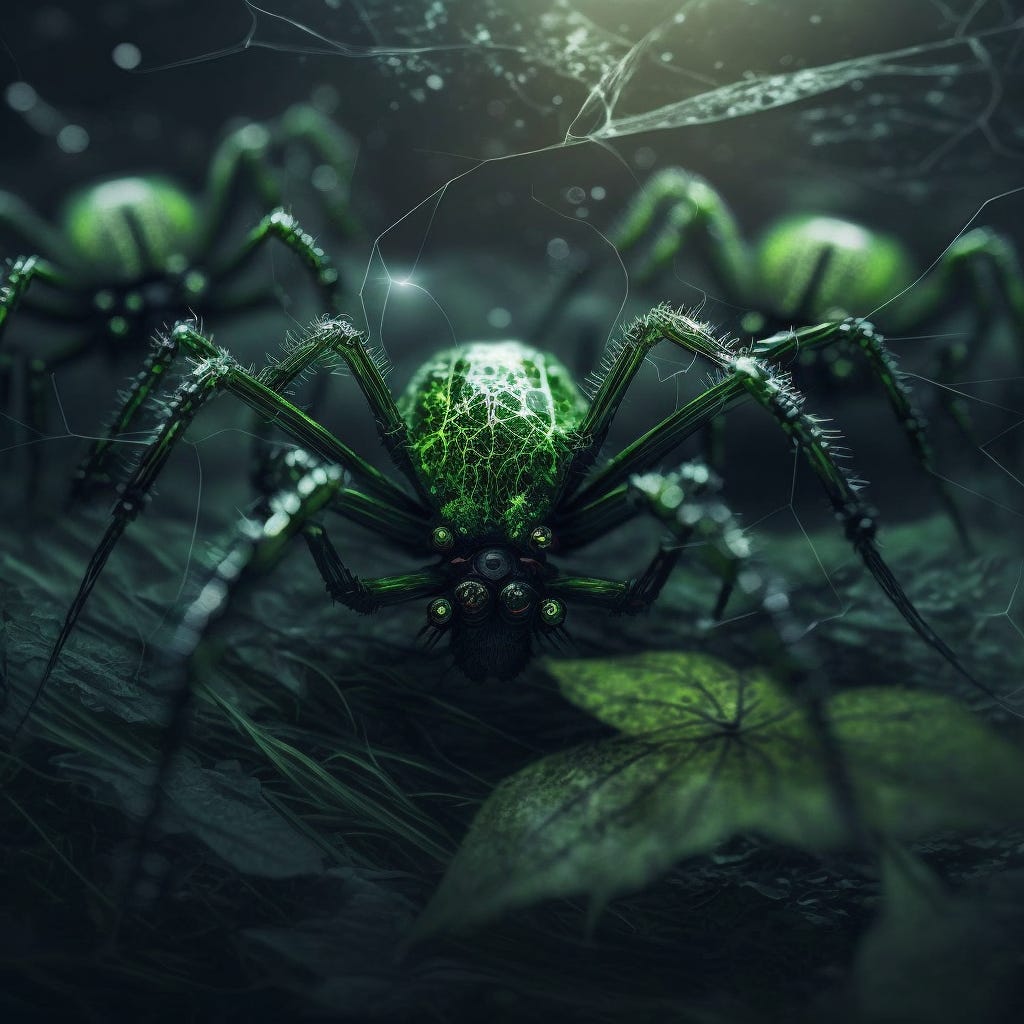
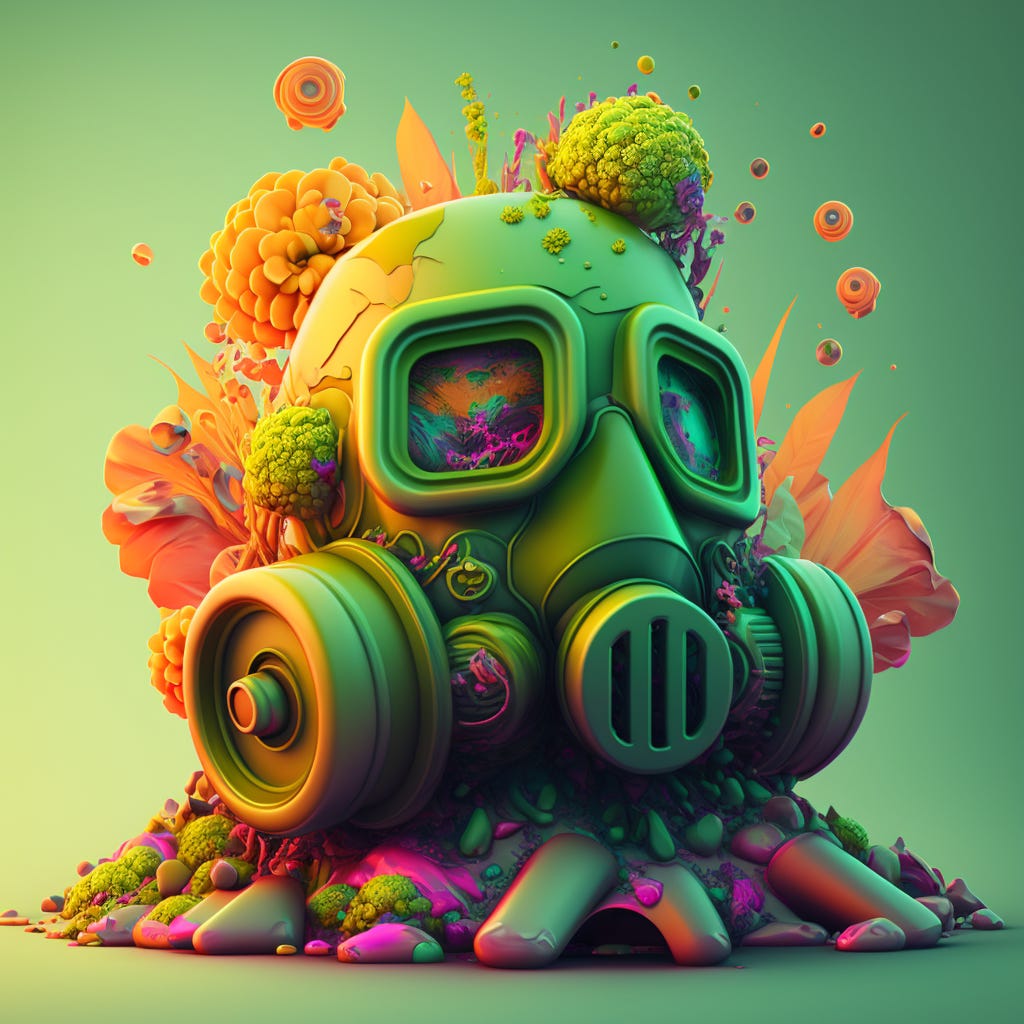
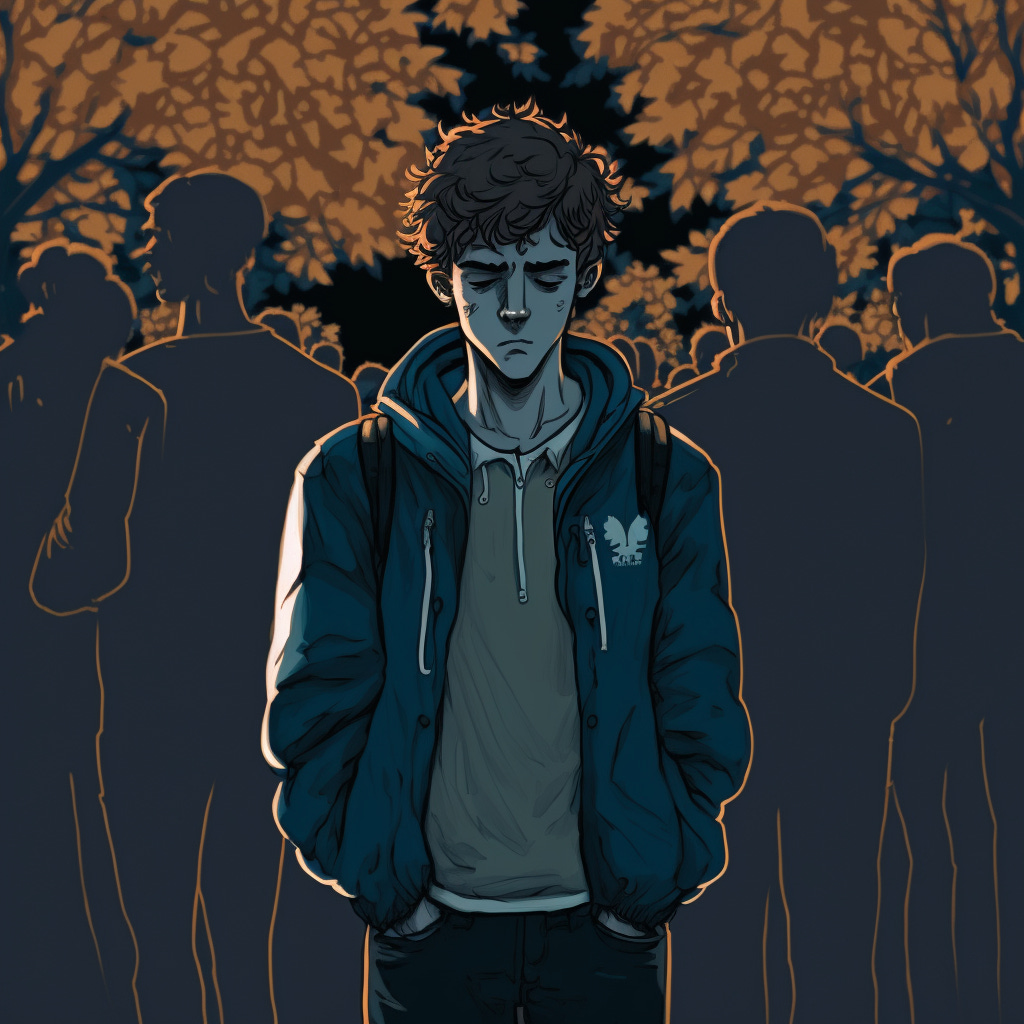
Love the use of artwork in this!